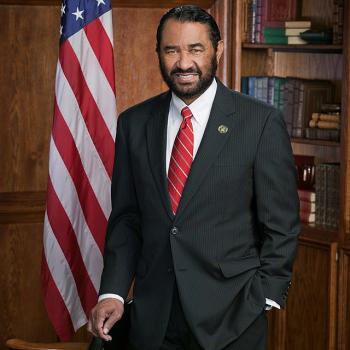I confess. I haven’t been all that interested in the obsessive coverage of Robin Williams’ death.
My feelings about Mr Williams before his death were generally positive but mostly disinterested. I enjoyed his movies and wished him well.
I knew, as soon as I heard that he had died, that we would be in for another of these 24/7 whatevers that the media does when someone famous dies. Sure enough, I flipped briefly to the news last night, and I saw a talking head interviewing one person after another eulogizing Mr Williams.
I don’t want to say anything bad, negative or dismissive about Robin Williams, his tragic suicide, or the hell his family and the few people who truly loved him must be going through right now. I’m also not going to say anything faux profound about depression or suicide.
What I do want to write about is one thing: Why?
Why do we go into these orgies of obsession every time someone famous dies?
It is so predictable and so bizarre that I am beginning to think that these griefathons serve some sort of purpose for us as individuals. The media is consistent about intoning gravely that we are engaging in a “national mourning” and then carpet-bombing our senses with what begins as worshipful eulogies spiced with titillating details about how the person died, and finishes with sordid details about their personal failures and picadillos.
It’s a script. The media follows it like a cooking recipe, and we eat it up like it was dessert.
What’s the purpose? I don’t mean the obvious purpose of getting ratings and a kind of prurient interest in other people’s pain, but what is the real purpose for this obsessive and downright irrational behavior?
And it is irrational. Because, my friends, you didn’t know Robin Williams. You didn’t know Michael Jackson. Or Sonny Bono. Or Princess Diana. Or Marilyn Monroe.
You didn’t know any of them.
They were two-dimensional representations of themselves on big screens and little screens and videos to you. This does not belie the fact that they were people and that other people loved them deeply and suffered the extremes of grief and emotional dislocation when they died.
But the fact is, you are not one of those people. You did not know them. You did not love them. Before their passing, you did not even think about them all that much.
But the minute they die, we focus on them and the endless blabbing about their “contribution,” “genius,” and their saintliness begins and goes on for days and weeks until we finally wear it out and turn to something else.
We stop working, stop talking to our families, stop thinking about paying the bills and taking the dog for a walk, just plain stop our lives and sit transfixed in front of the tube watching hour after hour of celebrities being interviewed by talking heads who are themselves celebrities, saying the same trite things over and over about the newly departed. We are like spotlighted deer, staring at the images of this person we didn’t know and pushing ourselves to a kind of vicarious grief over their death.
Later, as the inevitable take-down starts and the tawdry details of their lives drip through, we extend the obsession into fascination and tut-tut our way through more wasted time and energy.
What’s going on here? People give whole days and weeks of their lives over to emotion about someone they never met, and then turn around in six months or a year when another big celebrity dies and do it again.
What are they getting out of it? What beast in the subterranean oozy places of our minds is this feeding?
Maybe it stems from that thing we know but don’t really believe: Our own mortality. Does this have something to do with an affirmation that Robin Williams/Michael Jackson/Sonny Bono/Princess Diana/Marilyn Monroe are dead … but we are alive?
Is this a backdoor way of dealing with the fact that we are all going to die and that this knowledge haunts us all of our living days? Robin Williams threw away the one thing that any of us ever truly possesses: His life. He refused years of living.
I don’t want to say anything about suicide or depression. I have no deep thoughts to add to that conversation. But it is a fact that Robin Williams revoked his own lease on life. He gave up what most people would fight with everything they had to keep: Life.
I have no doubt that this titillates us.
But what makes it writ large is that he had everything that the gods of this world have taught us makes life worth living. He was a success on an international scale. He was up there as high as you can get in his very public profession; one of the handful out of the billions who walk this planet today. He had more money than we can count and the adulation of millions. He had everything we have been taught to spend our lives striving to get; every “if only” we think would make us happy and fill the holes in us that keep us awake at night.
That fascinates because if affirms in a silent sort of way that maybe all those things we’ve been taught to want and never got — the fame, success, endless money and pretty young things on our arms — don’t matter all that much after all. If the rich and famous can tumble to our feet like this, then maybe we aren’t missing all that much. Maybe we’re more ok than the same media that is now riveting us to Robin Williams’ death tells us we are.
Maybe our old jalopy and our two-bedroom house with the leaky faucet and our humdrum jobs that bore us to tears and our sadistic bosses from hell aren’t all that bad after all.
Because there’s this: He/She/They are dead. And we’re not.
Maybe the fascination lies in the fact that if the richest and most successful among us can die by their own excesses or even their own deliberate intent, then, maybe, in spite of all their glitzy success and our lackluster workaday lives, we, in fact, win.












